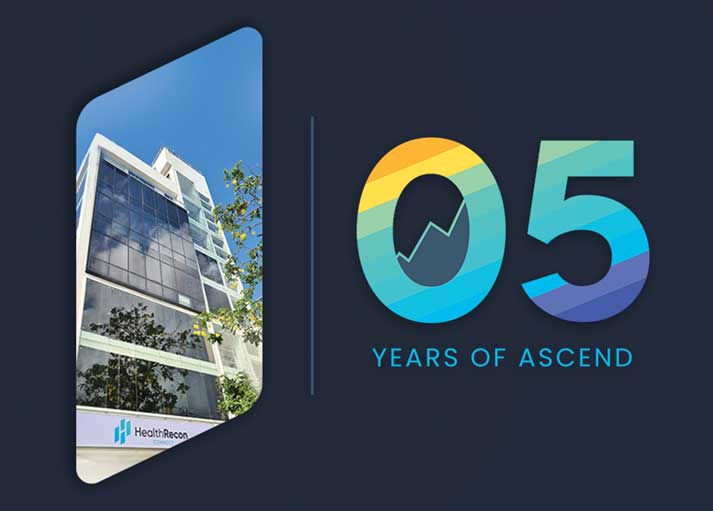HEALTHRECON CONNECT
Q: How can forward-thinking workplace cultures prioritise employee wellbeing?
 A: Various factors contribute to an employee’s wellbeing in a workplace. They are also inextricably linked to staff members’ social and financial situations.
A: Various factors contribute to an employee’s wellbeing in a workplace. They are also inextricably linked to staff members’ social and financial situations.
From a Sri Lankan workplace point of view, the concept of employee wellbeing will need to move beyond traditional initiatives such as health and safety measures, company health insurance, fitness programmes and the provision of meals, towards other elements that require deeper commitment and careful planning.
The post-COVID workplace will be limited in social interaction, high in digital presence, somewhat isolated, and a continuous loop of work with minimal time off for most and stressful home situations for some.
Companies need to recognise the strain on people’s mental wellbeing caused by continuous stress from both work and domestic demands.
There needs to be a conscious look at workplace dynamics that affect people and their state of mind, an empathetic understanding by leaders of an individual’s unique circumstances, and proactive policies such as special leave and flexible work arrangements where possible.
Of course, the basics such as clear communication, transparent policies and decisions, direct two-way feedback, understanding the circumstances of each employee, careful change management and empowerment are needed.
Q: Is employee engagement vital to nurturing a great workplace culture?
A: The engagement of an employee’s heart and mind is crucial. At HealthRecon Connect (HRC), we adopt the notion of ‘employee experience management’ towards an engaged employee.
A great workplace is where the experience of the employee is of a fair, respectful, collaborative, equitable, energetic, challenging, secure, empowered and developmental relationship with prospects of advancement.
Where there is a great employment experience, there’s a collective experience of a great workplace culture.
 Q: What would you say is the role of senior management in promoting an engaging culture?
Q: What would you say is the role of senior management in promoting an engaging culture?
A: The employment experience is greatly impacted by the senior management of a company. They should recognise values and design processes that drive the experience. They’re also responsible for living up to them and taking firm action when those values are compromised.
Senior management team sets the example for all other leaders down the structure and passes on the values that contribute to the daily experience of employees at different levels. The value congruence as a leadership team gives employees the confidence that decisions will be made in their best interest.
Q: In what ways have workplaces changed since the onset of the pandemic?
A: Changes brought about by the pandemic have altered work forever. The working from home (WFH) option has made workplaces more geographically dispersed and heavily reliant on technology.
Some critical changes that stand out are the need for new skills – viz. agility, automation, tech savviness, emotional intelligence, resilience and change management.
Additionally, what’s noteworthy is the need for different work models, process reengineering to facilitate them, and innovation that came about because of how the pandemic pushed cultures and processes to their limits.
Q: Do innovation and customer satisfaction contribute to a robust workplace culture?
 A: Innovation enables efficient workflows, freeing up employees’ time for greater value adding activities and improves processes, policies or solutions that benefit the stakeholders.
A: Innovation enables efficient workflows, freeing up employees’ time for greater value adding activities and improves processes, policies or solutions that benefit the stakeholders.
The ability to offer innovative ideas creates a culture that is open to suggestions and reaching for excellence, and empowers employees while creating a sense of ownership of the company.
Customer satisfaction is directly linked to the company’s financial performance, prospects and growth. These are the determinants of job security, financial rewards and benefits, investment in people related initiatives and enhancement of brand recognition. In turn, this creates pride in being a part of the company.
Commitment to high standards in customer service means a clear understanding of how the company will care for its clients. This is reiterated by rewards systems and resonates in all functions of a company, uplifting performance levels even in supporting functions.
Q: And how can a culture of trust improve business?
A: A culture of trust means employees have psychological safety in the workplace, and confidence that the company and its leaders will act in their best interest.
It means there is a genuine and lasting level of engagement between an employee and the company, and that an employee will be valued as an individual and treated with respect. It’s a culture where the employee feels that he or she belongs, and his or her contributions are valued – there is discretionary effort.
Businesses are built on the talent of people at all levels. Where there is trust, direct conversations can facilitate agile decision making, people collaborate freely and the right talent is in the right position, with empowerment to execute and an understanding of what the company’s expectations are.
Above all, where there is trust, employees behave as owners of a business, making the right decisions and working towards success at different execution levels.
INTERVIEWEE DETAILS
Denver Fernando
Chief Executive Officer
Thilini Ekanayake Samarakoon
Chief People Officer
COMPANY DETAILS
Telephone:4328827
Email:info@healthreconconnect.com
Website:www.healthreconconnect.com



